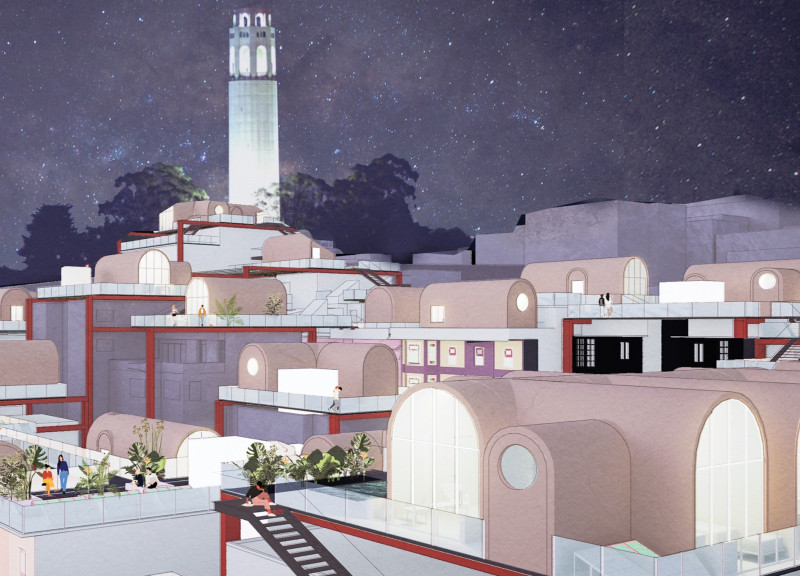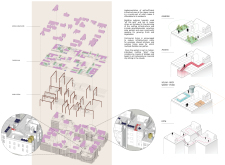5 key facts about this project
The Upper Lands project presents a practical response to urban housing needs in San Francisco by transforming underutilized rooftop spaces into viable residential and communal areas. The architectural design seeks to address both the growing demand for housing and the necessity for sustainable living environments. By elevating residential units onto rooftops, the project maximizes available urban space while promoting community engagement and environmental responsibility.
**Innovation in Urban Housing Solutions**
One of the defining aspects of the Upper Lands project is its innovative approach to converting rooftops into functional living areas. The design incorporates modular housing units that can be prefabricated and assembled efficiently on-site. This method not only accelerates construction timelines but also provides flexibility in adapting to various rooftops across the city. The project aims to generate approximately 31,155 new housing units while integrating community amenities such as shared gardens, kitchens, and recreational spaces. This focus on community-driven design enhances social interaction and fosters a sense of belonging among residents.
Moreover, the project employs a diverse material palette, including reinforced concrete for structural integrity, steel for its framework, and extensive glass elements to ensure maximum natural light. Sustainable materials such as solar panels and metal grids support efficient energy usage and promote green initiatives. These choices reflect a commitment to durability and environmental stewardship, setting the project apart in a city known for its progressive values.
**Community-Centric Design and Sustainability**
The Upper Lands project emphasizes community as a core principle by incorporating communal gardens and accessible green spaces. Residents are encouraged to participate in urban agriculture, reinforcing the concept of sustainability through local food production and biodiversity. The design features rainwater harvesting systems that allow for the reuse of water, further minimizing resources while providing essential services to both the community and the environment.
The unique elevation of living spaces fosters vertical connectivity in urban settings. Pathways linking residential units create an interactive network, promoting pedestrian circulation and enhancing community relationships. This uniquely layered design approach transforms rooftops from simple structures into vibrant environments for living, leisure, and social engagement.
The integration of solar energy technology supports the project's goal of minimizing environmental impact while ensuring affordability. By harnessing renewable energy, the Upper Lands project demonstrates how contemporary architecture can align with sustainable practices to create functional urban living spaces.
The Upper Lands project represents a forward-thinking solution to urban density challenges. It exemplifies how architectural design can rethink the use of space to create more livable environments in urban contexts. To gain a deeper understanding of the architectural plans, sections, and innovative ideas behind this project, readers are encouraged to explore the project presentation further.






















































